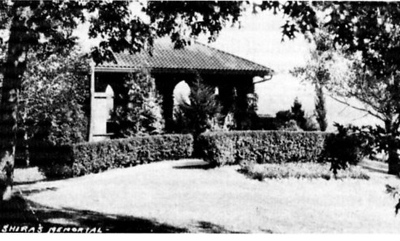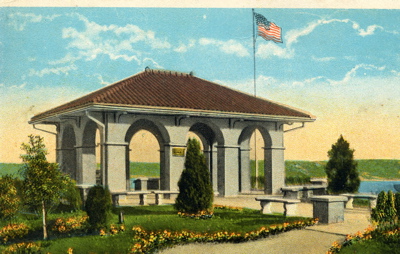Encyclopedia Dubuque
"Encyclopedia Dubuque is the online authority for all things Dubuque, written by the people who know the city best.”
Marshall Cohen—researcher and producer, CNN
Affiliated with the Local History Network of the State Historical Society of Iowa, and the Iowa Museum Association.
SHIRAS, Oliver Perry
SHIRAS, Oliver Perry (Pittsburg, PA, Oct. 22, 1833--Seabreeze, FL, Jan. 7, 1916). Judge. Largely through the efforts of Judge Shiras, citizens of Dubuque today enjoy EAGLE POINT PARK. Shiras also helped organize the Young Men's Library Association and served ten years as its president. He served as a trustee of the FINLEY HOSPITAL and vice-president of the Public Library Board.
Shiras came to Dubuque soon after his graduation from Yale in 1856. During the CIVIL WAR he served as aide-de-camp to General Francis J. HERRON in campaigns through Arkansas, Mississippi, Missouri, and Louisiana. After the war, Shiras returned to politics and his legal practice in Dubuque. He served on the City Council in 1866 and 1867, filling out an unexpired term of an elected official who moved from the ward from which he was elected.
Shiras served as a Republican delegate to many state and congressional conventions. On August 2, 1882, during President Arthur's administration, he was appointed United States Judge of the Northern District of Iowa and held the position until his retirement in 1903. Among the many important legal decisions in his career was the one he returned in the case of Washburn & Moen Company vs the Beat-Em-All Barbed Wire Company of Cedar Falls, Iowa. After hearing over three hundred witnesses, Shiras returned a verdict in favor of the defendants that resulted in prairie farmers no longer being victimized by high-priced fencing.
During Shiras' twenty-one-year judicial career he served as a judge of the Northern District, held circuit court in states that were part of the Eighth National Judicial Circuit, and was a member of the Circuit Court of Appeals for five years.



